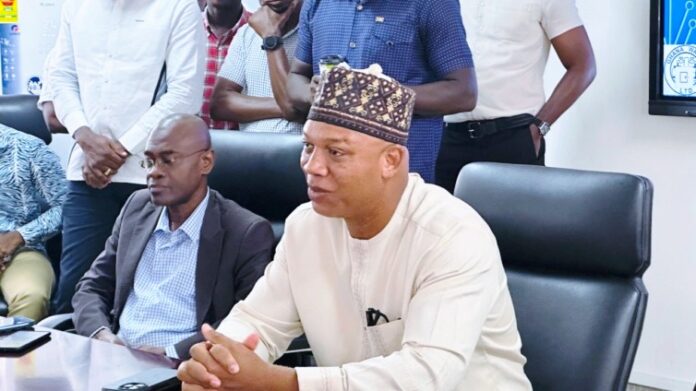The Managing Director of the Ghana Water Limited (GWL), Adam Mutawakilu, has sounded an alarm over the worsening effects of illegal mining, commonly known as galamsey, on the nation’s water treatment systems.
He has cautioned that if the trend continues, it could have serious economic repercussions.
Speaking at a press briefing in Accra on Monday, October 20, 2025, Mr. Mutawakilu described the rapid siltation of major water bodies as a national crisis that extends beyond the operations of the water company.
“This challenge matters beyond GWL,” he said. “If siltation continues unchecked, costs will cascade across the economy.”
He explained that as rivers and water sources become increasingly polluted and clogged with silt, the cost of treatment rises sharply, a burden that eventually filters down to industries and households.
According to him, the economic impact will be widespread. “Beverage and bottling firms will see slowdowns, higher input costs and stockouts. Food processing and fast-moving consumer goods companies will face disrupted production cycles and quality incidents,” he said.
Mr. Mutawakilu noted that the hospitality and education sectors are equally vulnerable.
“Hostels, restaurants, and events will struggle with unreliable supply and expensive backups,” he cautioned, adding that “schools and hospitals will be forced into water rationing, posing threats to hygiene and essential services.”
He also warned that manufacturers and real estate developers will not be spared. “Manufacturers will face processing interruptions. Real estate and commercial centres will absorb rising costs for backup water and energy,” he observed.
The GWCL boss concluded by emphasizing that the continued destruction of Ghana’s water resources could undermine national productivity and trigger inflationary pressures.
“Productivity falls and prices rise when a fundamental input like treated water becomes more expensive and less reliable,” he stated.
Source: Adomonline
ALSO READ:



